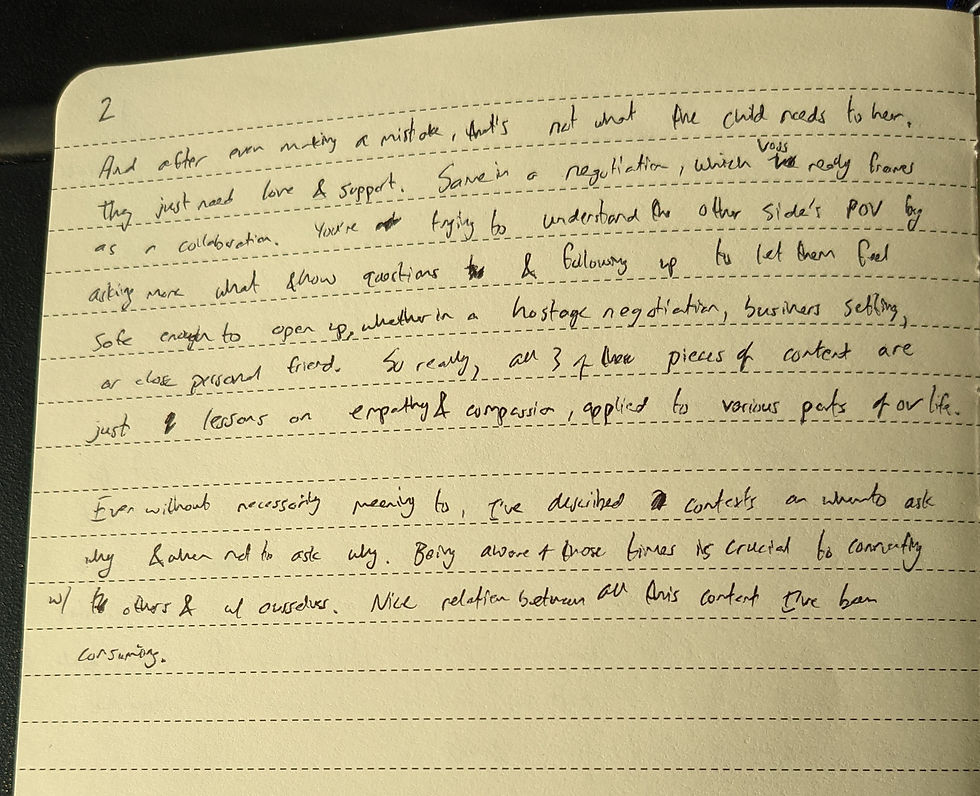Day 10 of Be Extraordinary talked about the vision for the future. It mainly highlighted the pitfalls we fall into when setting goals. They're usually means goals vs ends goals. We think that we want to get into a good college or have good grades or have a high paying job but those are really just a means to an end. They don't have "so that" in them, to indicate that you're doing something to have an effect towards something else. When you ask the question "Why" for that goal repeatedly, you'll get to the real ends goals. That's what we want to focus on. Our mind is worried about the how but really the soul only knows the what and it'll get you to the what in the best way possible. So no reason fighting it. The exercise today is just to set up the template for the 3 Most Important Questions (3MIQ) that we'll fill in tomorrow. These are listing out the ends goals for each of the types of happiness that he identified earlier: experiences, growth and meaning / contribution.
I spent some time yesterday doing one of my recurring tasks of updating my vaults, which includes making sure the notes I've taken are highlighted correctly according to my structure. I was highlighting notes in the Childhood Matters book I read in January and I realized that the key messages were heavily linked to Wooden & Chris Voss' Negotiation MasterClass. When talking to children, the author said to acknowledge the effort they made, not the end result, articulating the difference between praise and acknowledgement. That's obviously very close to Wooden's message of putting in the effort and letting the result play out as it may. It was similar to the Negotiation MasterClass in that it said don't ask 'why?' because it makes you feel small & , like you did something wrong. And after even making a mistake, that's not what the child needs to hear. They just need love & support. Same in a negotiation, which Voss really frames as a collaboration. You're trying to understand the other side's POV by asking more 'what' and 'how' questions and following up to let them feel safe enough to open up, whether in a hostage negotiation, business setting, or close personal friend. So really, all 3 of these pieces of content are just lessons on empathy and compassion, applied to various parts of our life.
Even without necessarily meaning to, I've described contexts on when to ask why and when not to ask why. Being aware of those times is crucial to connecting with others and with ourselves. Nice relation between all this content I've been consuming.





Commentaires